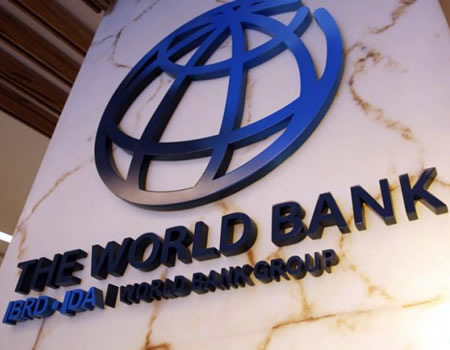The World Bank has projected that growth in emerging markets and developing economies is expected to decelerate from 3.8 per cent in 2022 to 2.7 per cent in 2023, reflecting significantly weaker external demand compounded by high inflation, currency depreciation, tighter financing conditions, and other domestic headwinds.
It however added that by the end of 2024, Gross Domestic Product (GDP) levels in emerging and developing economies will be roughly 6 per cent below levels expected before the pandemic.
According to the World Bank’s latest Global Economic Prospects report, “over the next two years, per-capita income growth in emerging market and developing economies is projected to average 2.8 per cent – full percentage point lower than the 2010-2019 average.

“In Sub-Saharan Africa – which accounts for about 60 per cent of the world’s extremely poor – growth in per capita income over 2023-24 is expected to average just 1.2 per cent, a rate that could cause poverty rates to rise, not fall”.
The report notes that global growth is slowing sharply in the face of elevated inflation, higher interest rates, reduced investment, and disruptions caused by Russia’s invasion of Ukraine.
“Given fragile economic conditions, any new adverse development – such as higher-than-expected inflation, abrupt rises in interest rates to contain it, a resurgence of the COVID-19 pandemic, or escalating geopolitical tensions – could push the global economy into recession”, according to the World Bank’s latest Global Economic Prospects report.
This would mark the first time in more than 80 years that two global recessions have occurred within the same decade.

The global economy is projected to grow by 1.7 percent in 2023 and 2.7 percent in 2024.
The sharp downturn in growth is expected to be widespread, with forecasts in 2023 revised down for 95 percent of advanced economies and nearly 70 percent of emerging market and developing economies.
World Bank Group President David Malpass said, “The crisis facing development is intensifying as the global growth outlook deteriorates.
“Emerging and developing countries are facing a multi-year period of slow growth driven by heavy debt burdens and weak investment as global capital is absorbed by advanced economies faced with extremely high government debt levels and rising interest rates.
“Weakness in growth and business investment will compound the already-devastating reversals in education, health, poverty, and infrastructure and the increasing demands from climate change.”
The report projects growth in advanced economies to slow from 2.5 per cent in 2022 to 0.5 per cent in 2023, noting that over the past two decades, slowdowns of this scale have foreshadowed a global recession.
In the United States, growth is forecast to fall to 0.5 per cent in 2023, 1.9 percentage points below previous forecasts and the weakest performance outside of official recessions since 1970.
In 2023, euro-area growth is expected at zero per cent, a downward revision of 1.9 percentage points.
In China, growth is projected at 4.3 per cent in 2023, 0.9 percentage points below previous forecasts.
ALSO READ FROM NIGERIAN TRIBUNE







